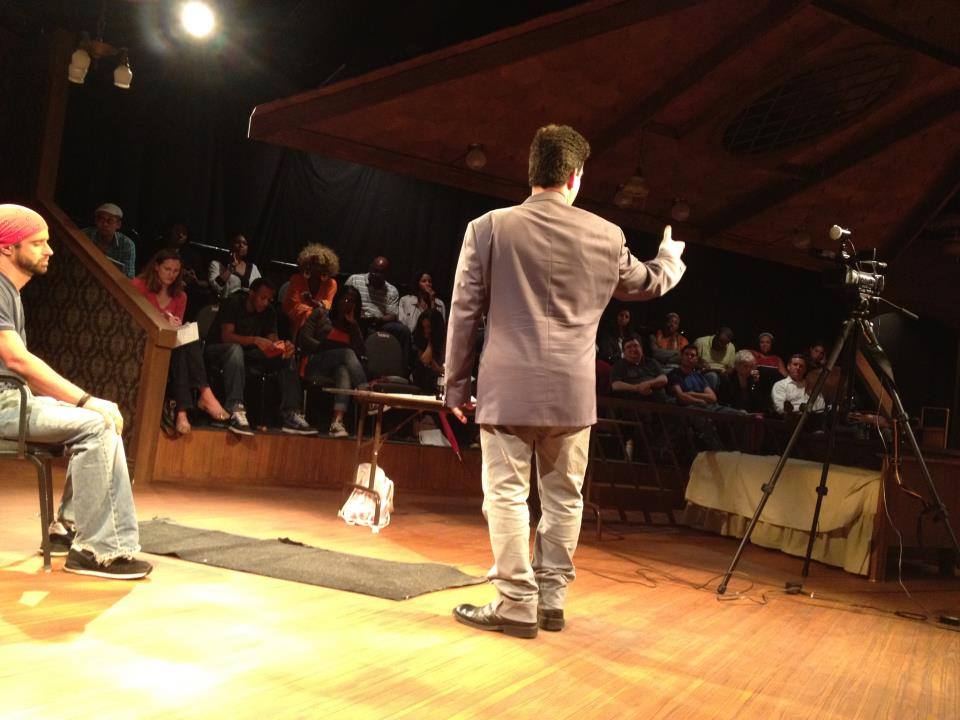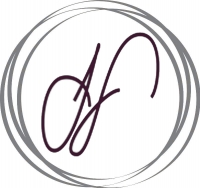Archive
Categories
- Uncategorized (2)
- Acting Tips (13)
- Acting Tools That Work... (3)
- Free Sample Acting... (2)
- Acting School... (1)
- Questions You Ask when... (1)
What Makes a Great Audition
Posted: Sep. 4, 2014
0 trackback(s)
Trackback
Category:
Acting Tips


WHAT MAKES
A GREAT AUDITION
From New York City Acting Coach John Pallotta
What Makes a Fabulous Audition?
“Great, wonderful, fabulous, exactly what we’re looking for.
“Great, wonderful, fabulous, exactly what we’re looking for.
We open next month. Are you available?” Sound familiar?
“They raved after my audition so much I thought I had the job.
Then I never heard from them again. What happened?”
“What happened?”
Summarizes the entire audition experience. But rather than begin with that question, let’s first see what work lies behind a great, wonderful, fabulous audition. You can’t always control the casting people but you can always control your own journey to an A+ audition. At the end of exploring auditions, we’ll return to that wise but heartbreaking question, “What happened?”
Let’s assume you’ve had excellent acting classes and maybe even some professional experience. So your acting ability is honed and ready. But I emphasize that what follows is for both newcomers and old-timers to the audition world.
Auditioning is a technique that can and must be learned–unless you were born knowing how to walk in and take over an audition room. A fabulous audition begins with preparation of material and preparation of self and culminates in presentation of material and presentation of self, plus a graceful exit. Preparation / Presentation / Plus. Simple? Hardly!
PREPARATION OF MATERIAL (For both a monologue or sides)
Learn as much as you can about the people holding the audition. If it’s an open call, research the company’s season and see what roles you’re right for. Fit your monologue to their season.
Do your homework
One of my students researched a theatre company she was auditioning for, discovered a picture of their artistic director on their website and at the audition, as the actor approached the audition table she said (charmingly), “You are ABC, the artistic director. I saw your picture on the website.” That comment opened a conversation. It also demonstrated the actor’s interest, imagination, and ingenuity. Just knowing your monologue or lines does not give you the needed edge. RESEARCH does.
About memorizing. Know your monologue so well that your tongue can go on automatic pilot even if your brain crashes. I remember once auditioning with a Shakespeare monologue I had used several years, taken from a play I had performed several times. I had coached the role and the monologue both in New York and in London. I KNEW IT. IT WAS MINE! At this particular audition I get to the final two lines (a couplet) and poof–they evaporated. Memory glitch. Tongue dies. Brain heads for Jupiter, maybe Pluto. Embarrassment. Total flop. Graceless exit. A scullery maid, not a duchess. Humiliation. No, I did not get the role. “What! She can’t even remember a couplet!!” How to avoid that situation? For a couple of days before each monologue audition, review it as if it were new. Preparation of material! A lesson learned the hard way!
However, if you have sides, do not try to memorize your sides unless it is a very short scene, where you only have a dozen words. You want your entire focus on your acting, not on trying to remember the lines or getting flustered because you dropped a phrase. Instead of memorizing the sides, work on the sides.
Preparation—a major way to build confidence. Walk in with your material prepared and the project and people researched.
PREPARATION OF SELF
Our attitude about ourselves is a performer’s never-ending battle. Neither wise guy nor wimp. Neither a cocky know-it-all nor a shy, poor me, shrinking violet. While I personally find pleasant blandness boring, many audition committees prefer it to a hurricane of personality. It’s a tough decision for an actor.
Our attitude about ourselves is a performer’s never-ending battle. Neither wise guy nor wimp. Neither a cocky know-it-all nor a shy, poor me, shrinking violet. While I personally find pleasant blandness boring, many audition committees prefer it to a hurricane of personality. It’s a tough decision for an actor.
They want family
The casting people are not only looking for talent, but also for people who can and will take direction and who can and will contribute to a comfortable workplace. Creating a pleasant self-confidence in the personal persona and imaginative, energetic intelligence in the performing persona–that’s probably the best route.
Exception: If you are one of those truly rare creatures–a great actor–you will find your own way. But do NOT take the word of your friends, family, or teachers about how great you are. You will feel it deep in your being and your audiences filled with strangers will let you know. But if you are a good (not great) actor then you must brush up on your audition manners and persona.
As you examine your feelings about yourself as an actor, be truthful in your self-analysis. What are your weaknesses–Short temper? Fear? Concern about talent? Depression? Nasty attitude toward others? Defensiveness? Negative comparisons? Each one of these could damage an audition.
Addressing your weaknesses
I urge you to address your own weaknesses in an article you write to yourself. Writing forces you to search for the precise words and that search forces you to think clearly. Be truthful. Then use your intelligence to solve those problems. Are you an actor whose self-image/behavior/impression are keeping you from success? Whose self-doubt creates doubt in those who hear your audition? Whose arrogance creates annoyance?
TALENT
Talent is important but it’s seldom the major consideration in casting a role. Ask people who have acted as readers during auditions. Ask anyone who has sat behind an audition table. More important than talent is presence, poise, confidence–not arrogant confidence, but confidence that quietly exudes “I am professional, I am reliable, I do not require high maintenance, I know my job and I can do it beautifully.”
We who audition walk a fine line between arrogance and confidence. The first will skunk you. The second will go a long way toward casting you. Develop an inner quality of quiet self-belief. Nothing is a bigger turnoff than arrogance. Nothing is a bigger turnoff than “Poor me. I’m such a sweet little shrinking violet. Pleeease cast me.” And the biggest turnoff of all is lack of preparation both of self and material.
Your first and most powerful impression occurs as you open the door to the audition room. Practice entering the room. It’s good if you can work with another actor. If not, then consider a coaching session with someone who knows what they’re talking about. That first split second impression is vital. They take in your posture, your face, your clothes, your hair, your energy, the way you walk, your general sense of yourself.
It’s all there, hitting them consciously or subconsciously. I once had a mock audition session with a talented handsome young actor who had no idea that as he approached the audition table he walked like a bowlegged cowboy. In real life he was neither bowlegged nor a cowboy. Would you cast a bowlegged cowboy as Hamlet? Teach yourself to smile openly (include the eyes), enunciate your name clearly, dress appropriately. Remember, an overall impression is made before you open your mouth.
Your a salesman
An audition is a sales event and the product you are selling is your entire performing persona, not merely your talent. Preparation of SELF is as important as preparation of MATERIAL. I have had the opportunity to perform with some “names” and every one of them—yes, every one—had that inner quality of poise and presence. With one exception they were also gracious, pleasant, professional. Put them in a crowd and merely from their inner energy you can tell they are stars. Develop that energy.
Go to every audition and open call you can in order to practice your auditioning techniques. Actors in an open call line often say, “This is a waste of time. Everything’s already cast.” Maybe so. But if you learn HOW TO AUDITION from going to these open calls, then you will be ready when the “real” opportunities come.
PEE PEE
PREPARATION OF MATERIAL / PREPARATION OF SELF. These are the foundations for a fabulous audition.
FROM
ACTING COACH
JOHN PALLOTTA
www.johnpallotta.com
